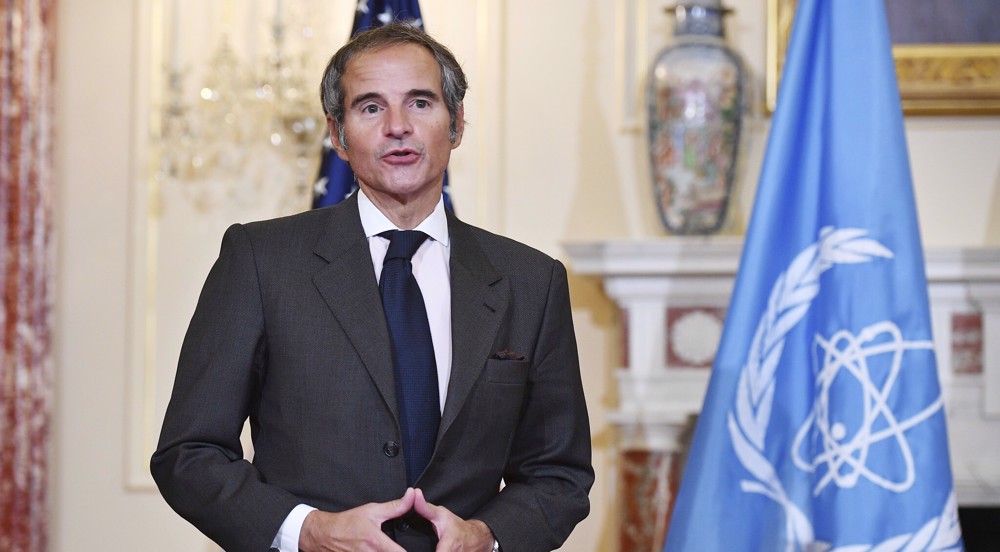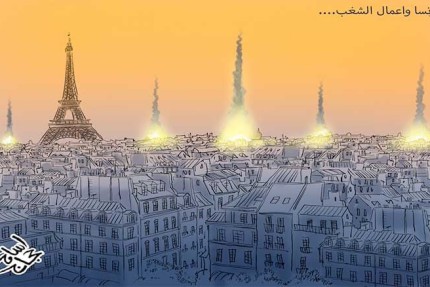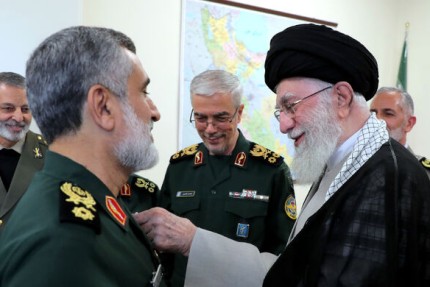Grossi’s visit to Israel out of phase with IAEA impartiality

Iran says the visit by the International Atomic Energy Agency (IAEA)’s chief Rafael Grossi to Israel ahead of the Monday meeting of the
Board of Governors is in contradiction with the agency’s principles of observing impartiality and maintaining its technical and professional status.
Foreign Minister Hossein Amir-Abdollahian made the remarks in a phone call with the European Union’s foreign policy chief Josep Borrell on Friday while pointing to the “destructive” measures of the Zionist regime, which is the “main culprit of illegal nuclear activities in the world.”
Grossi is on a trip to Tel Aviv and has met the regime’s hawkish Prime Minister Naftali Bennett.
The high-profile visit by Grossi is against the backdrop of the latest report by the IAEA on Iran’s nuclear program amid the stalemate in Vienna talks between Tehran and the P4+1 group of countries to salvage the Joint Comprehensive Plan of Action (JCPOA).
Iran has on many previous occasions cautioned the UN nuclear agency against allowing the Israeli regime to influence its independent mandate and decision-making.
In a statement issued on Friday, Israel told the UN nuclear watchdog it would prefer diplomacy to end the stalemate on Iran’s nuclear program. However, the statement said Israel reserves the right to self-defense and could take independent action if the international community fails to stop Iran’s nuclear program within “the relevant time frame.”
According to the statement, the Israeli prime minister “stressed (to Grossi) the importance of the IAEA Board of Governors delivering a clear and unequivocal message to Iran in its upcoming decision.”Grossi said on Twitter that he had met Bennett in Tel Aviv at his invitation and held “important exchanges on topical issues.”
Comment
- The Cause and the Timing of the Ikhwan-ul Muslimeen Dissolution: “They Were Supposed to be Dissolved Five Years Ago
- Israel Seeks to Intensify the Situation and Change the Middle East Map
- Iraq’s Judiciary Power Should Conduct Research on Al-Jowlani’s Crimes
- There is a Lot of Hope that the Iran-US Negotiations would Lead to Success
- The War on Syria was One of the Seven Wars that Israel had Wanted
- The Cause and the Timing of the Ikhwan-ul Muslimeen Dissolution: “They Were Supposed to be Dissolved Five Years Ago
- Israel Seeks to Intensify the Situation and Change the Middle East Map
- Iraq’s Judiciary Power Should Conduct Research on Al-Jowlani’s Crimes
- There is a Lot of Hope that the Iran-US Negotiations would Lead to Success
- The War on Syria was One of the Seven Wars that Israel had Wanted
- Trump is Content with a Negotiation: For Him Speaking with Iran is an Achievement
- The US and Turkey have Signed an Agreement Over Intervention in Iraq Affairs
- Tehran -Washington Negotiations in Oman: How can Iran maintain the initiative?
- Tensions Between Turkey and the Zionist Regime: The Vague Future for Syria in the Battle Fields of the Occupiers
- Trump’s Threats against Iran is a Political Maneuver
- Iran has a Lot of Experience When Encountering the US and its Enemies
- Washington has Devoted itself to Israel and Zionism by Ignoring the Rights of the American People
- Trump’s Current Term is a New Phase of Global Tensions and Clashes
- The Cause and the Timing of the Ikhwan-ul Muslimeen Dissolution: “They Were Supposed to be Dissolved Five Years Ago
- Israel Seeks to Intensify the Situation and Change the Middle East Map
- Iraq’s Judiciary Power Should Conduct Research on Al-Jowlani’s Crimes
- There is a Lot of Hope that the Iran-US Negotiations would Lead to Success
- The War on Syria was One of the Seven Wars that Israel had Wanted
- Trump is Content with a Negotiation: For Him Speaking with Iran is an Achievement
- The US and Turkey have Signed an Agreement Over Intervention in Iraq Affairs
- Tehran -Washington Negotiations in Oman: How can Iran maintain the initiative?
- Tensions Between Turkey and the Zionist Regime: The Vague Future for Syria in the Battle Fields of the Occupiers
- Trump’s Threats against Iran is a Political Maneuver





